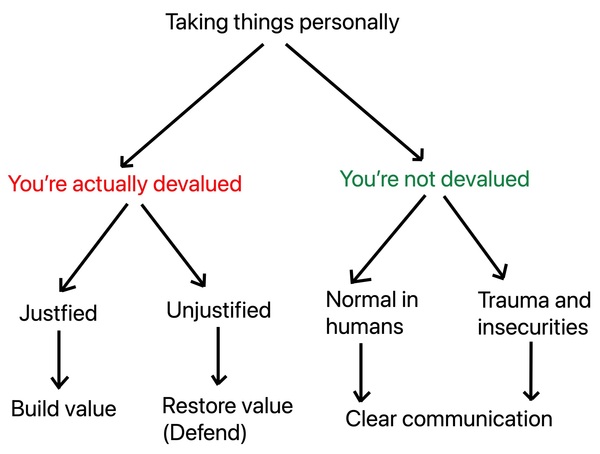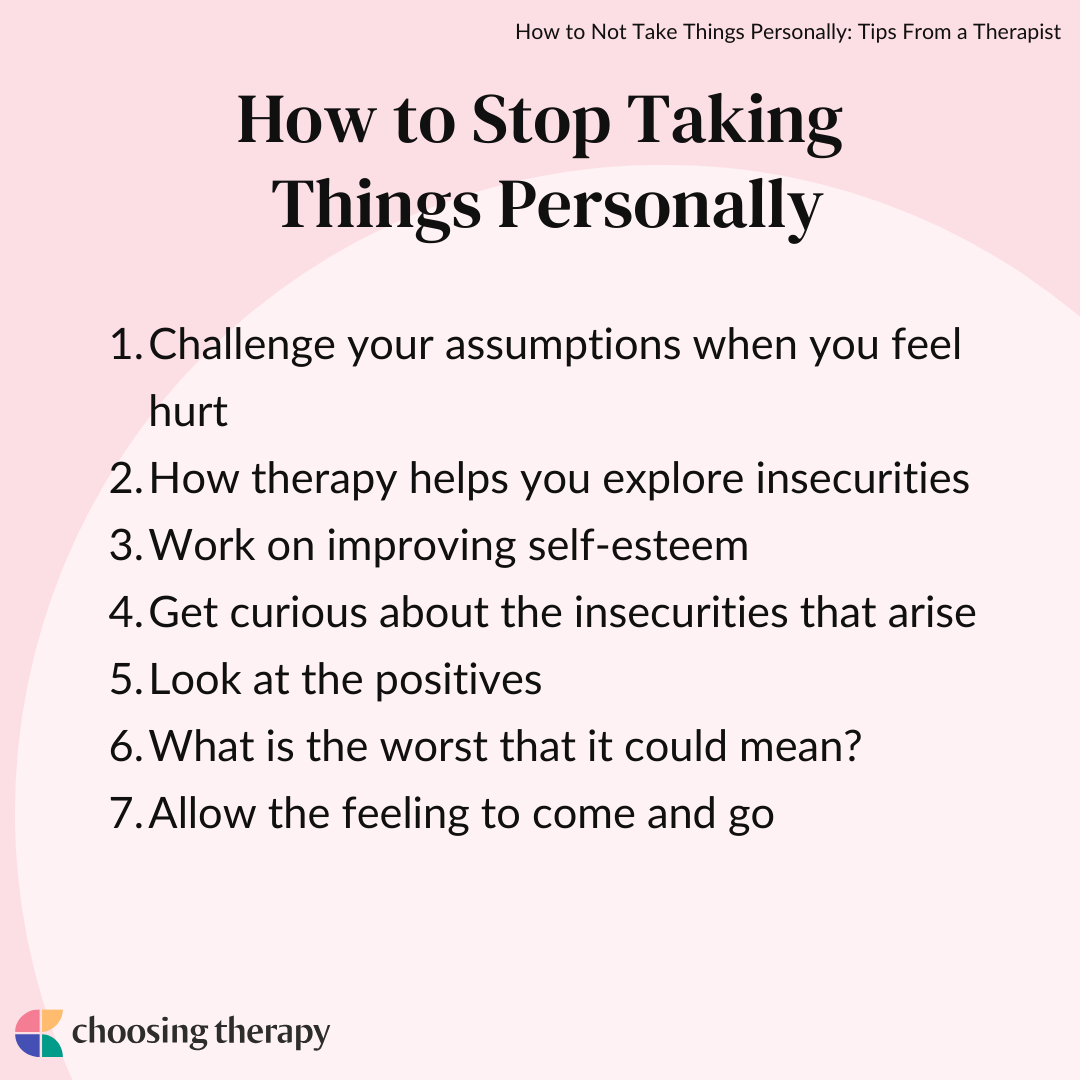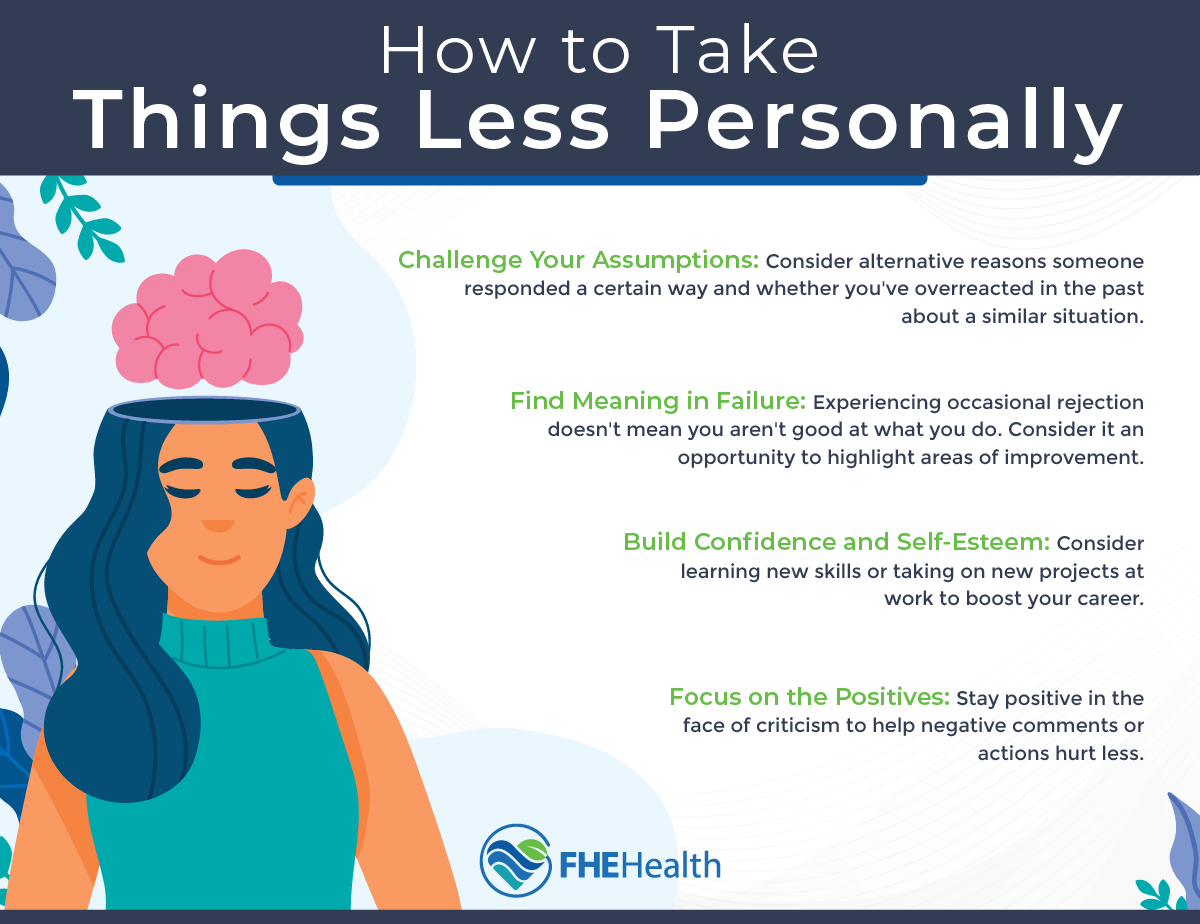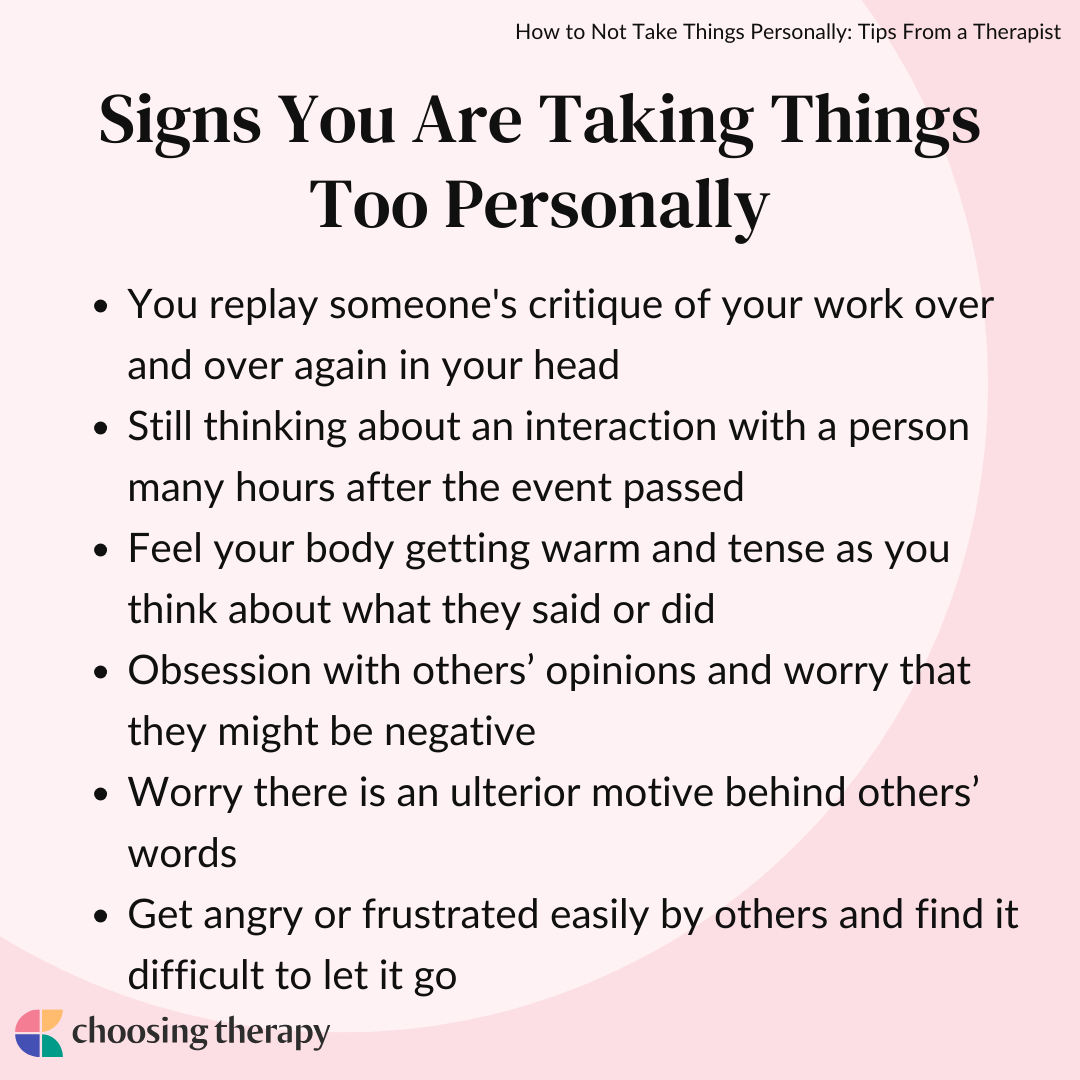Why Do People Take Things Personally

In a world increasingly interconnected yet seemingly more divided, the tendency for individuals to take things personally remains a pervasive aspect of human interaction. Understanding the underlying mechanisms driving this phenomenon is crucial for fostering healthier communication and mitigating unnecessary conflict.
The propensity to internalize external events, interpreting them as direct reflections of one's worth or capabilities, has significant implications for mental well-being and interpersonal relationships. This article delves into the multifaceted reasons behind this common human behavior, exploring the psychological and social factors at play.
The Psychology of Personalization
At its core, taking things personally often stems from a cognitive bias known as personalization. This bias leads individuals to believe that they are more responsible for events or outcomes than they actually are.
This can manifest in various ways, such as assuming blame for a colleague's mistake or interpreting a general critique as a personal attack. Dr. Eleanor Ross, a clinical psychologist specializing in cognitive behavioral therapy, explains that "personalization is often rooted in low self-esteem and a fear of rejection."
Individuals with fragile self-worth are more likely to interpret neutral or even positive events as negative, perceiving hidden criticism or ulterior motives. Attachment theory also plays a role; those with insecure attachment styles, often stemming from childhood experiences, may be hypersensitive to perceived threats to their relationships.
The Role of Past Experiences
Past experiences, particularly traumatic or emotionally charged events, can significantly shape an individual's tendency to take things personally. If someone has consistently experienced criticism or rejection in the past, they may develop a heightened sensitivity to similar cues in the present.
This can lead to a pattern of anticipatory anxiety, where individuals expect negative outcomes and interpret ambiguous situations as confirmation of their fears. Furthermore, individuals who have experienced bullying or gaslighting may struggle to differentiate between genuine criticism and manipulative tactics.
These experiences can create a hyper-vigilant state, where individuals are constantly scanning their environment for potential threats to their self-esteem or social standing.
Social and Cultural Influences
Beyond individual psychology, social and cultural factors also contribute to the phenomenon of taking things personally. In cultures that emphasize collectivism, individuals may be more attuned to the opinions and judgments of others, as their sense of self is more closely tied to their social group.
Similarly, social media platforms can amplify the tendency to personalize interactions. The constant exposure to curated images of perfection and the potential for public scrutiny can fuel feelings of inadequacy and increase sensitivity to perceived criticism.
Professor Samuel Hayes, a sociologist specializing in social media's impact, notes that "the anonymity afforded by online platforms can embolden individuals to make harsh or critical comments that they might not express in person, leading to increased feelings of hurt and resentment among recipients."
Mitigating the Tendency to Personalize
Addressing the tendency to take things personally requires a multi-pronged approach. Developing self-awareness is a critical first step. Recognizing one's own biases and triggers can help individuals challenge their initial interpretations of events.
Mindfulness techniques, such as meditation and deep breathing, can also promote emotional regulation and reduce reactivity. Cognitive reframing, a core technique in cognitive behavioral therapy, involves challenging negative thought patterns and replacing them with more balanced and realistic perspectives.
Furthermore, practicing empathy and attempting to understand the other person's perspective can help individuals avoid making assumptions and personalize interactions unnecessarily. Learning to communicate assertively and setting healthy boundaries are also essential skills.
Ultimately, reducing the tendency to take things personally involves cultivating self-compassion and accepting that not everything is about oneself. It is a journey of self-discovery and emotional growth that can lead to healthier relationships and a greater sense of inner peace.


















